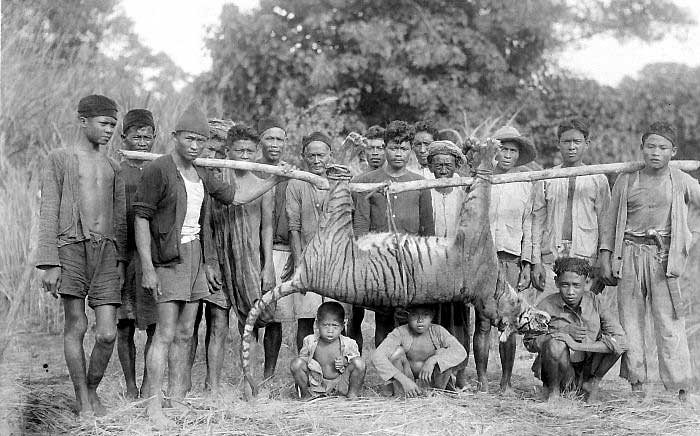
Tigers, the world’s largest wild cat, have been on earth for over 2 million years, but in the last 100 years, 95% of wild tiger populations have disappeared and three tiger subspecies have become extinct. Here in this article, we will explore why are tigers endangered and how can we help.
Why Tigers Endangered?
1.Poaching
Anthropogenic hunting is the direct cause of tiger population decline.
Because of being rare, tigers are considered to be extremely valuable.People hunt tigers for their pelts, teeth, claws, and bones. These items are collected and sold as novelty items; some still use them as a symbol of status.
In addition to this, tigers internal organs are being used by some Asian countries as folk medicine and traditional remedies.Weird enough, tiger penis is used as an ingredient for soup and is regarded as an aphrodisiac.
2.Habitat Loss
Habitat loss, human conflict, and climate change have been attributed to a severe decrease in tigers’ natural habitat range.
Like most wild animals, tigers face challenges as they are being forced to survive in an unnatural environment where the population of potential prey is also deficient. The occupation of the land leads many species of animals (i.e., a potential prey of tigers) to relocate or even perish as a result of the loss of resources. As the number of their prey continue to decrease, so will the number of tigers.
The human population has tripled since the 1950s. Such a large increase has led to an extreme and severe reduction of tigers’ natural habitat range. Scientists estimate that tigers have lost 85% to 93% of their habitat land.
3.Climate Change
Tigers are known to be highly adaptable creatures, yet global warming brought about climate change is quickly going faster than their adaptation. The destruction of their habitats and loss of natural resources leads these tigers to become highly vulnerable.
Studies have revealed that the survival of tigers in an area is affected by several climatic and topographic factors which include temperature, humidity, and forest cover.
4.Human Conflict
Tigers are deprived of a place to do their usual activities like roaming and hunting. With the reduction of the number of prey, these tigers have no option but to approach nearby farms and villages and are forced to have human contact.
Due to such almost direct contact, these tigers are sometimes being injured or killed because of the landowners’ fear that these tigers might kill them and their livestock.This has led to farmers killing many tigers to protect their livestock.
5.Deforestation also contributes to a loss of tiger habitats.
As the population of humans in the world continues to rise, the process of industrial development, urbanization, and agricultural growth remain to appear “evil” as such steal and break into the wildlife of their natural habitat.It is just quite saddening that the places that were once inhabited by these tigers have been turned into the most densely populated lands in the world.
How can we help tigers not be endangered
There are many ways in which we can all help contribute to the conservation of tigers and many more endangered species.
1.Publicity And Education
One of the ways is to educate yourself about tigers, protection, and endangered species by reading articles such as this one and many others provided from trusted sources such as The World Wildlife Federation or National Geographic. Another way to help is to go out and share your knowledge with your family, friends, classmates, and others because knowing about an issue is the best way to help address it.
2.Support the foundation
Other ways of supporting conservation efforts include raising money and donating to conservation funds and efforts.
3.Protecting the environment
Deforestation is another critical issue endangered tigers and other threatened species face.
We must actively promote knowledge that encourages ecological conservation and raise awareness of environmental protection, especially deforestation.
4.Combating poaching
As the rate of animal poaching continues to rise, conservationists have begun calling for stronger laws and deterrents to wildlife crimes.The governments and non-governmental organizations are starting to take wildlife crimes as seriously as other transnational crimes such as drug smuggling and human trafficking.Reassuringly,In recent years countries have strengthened anti-poaching laws and stepped up prosecutions.
5.Boycott tiger products
Tigers are also poached for their organs, bones, and pelts (skin with fur) and such items are being sold as prized possessions in the underground black markets.
We have to boycott these tiger-related commodities, so that there is no market for them.
So, now you can share with family and friends information about what makes tigers endangered and how we all can help.